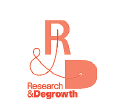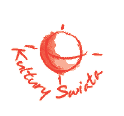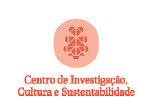Partner organisations from GROWL project:
Transition Town Witzenhausen (Germany)
 In January 2009, several citizens decided to start the Transition Town Witzenhausen (TTW) initiative, to support a sustainable development in our region. We see ourselves as a local network that attempts to connect, engage and build synergies between the people in our town. The departure point is the knowledge that the worldwide human life support basis will substantially change in the coming times: fossil fuels (oil, uranium, etc.) become scarce and expensive, climate change will directly impact our lives and economic crisis bring further constraints on employment and income.
In January 2009, several citizens decided to start the Transition Town Witzenhausen (TTW) initiative, to support a sustainable development in our region. We see ourselves as a local network that attempts to connect, engage and build synergies between the people in our town. The departure point is the knowledge that the worldwide human life support basis will substantially change in the coming times: fossil fuels (oil, uranium, etc.) become scarce and expensive, climate change will directly impact our lives and economic crisis bring further constraints on employment and income.
Our initiative develops, within different project groups, visions and proposals that attempt to provide answers to these issues and implement them through the collaboration among interested people. These include an increase in the autonomy, self-sufficiency, community and local development. We feel that our group is growing, both in size and in the diversity of people involved. More info: http://ttwitzenhausen.de Contact: info(ät)ttwitzenhausen.de
Research & Degrowth (France)
 Research & Degrowth France (R&D France) is an academic association founded in 2006, dedicated to research, practice, training, and dissemination on the topic of sustainable degrowth in France. R&D France strives to combine academic and practical work, the building of alternatives while questioning environmentally and socially destructive projects and policies. It is active locally, and internationally, and aims at building bridges and networks between various societal actors on regional and international level.
Research & Degrowth France (R&D France) is an academic association founded in 2006, dedicated to research, practice, training, and dissemination on the topic of sustainable degrowth in France. R&D France strives to combine academic and practical work, the building of alternatives while questioning environmentally and socially destructive projects and policies. It is active locally, and internationally, and aims at building bridges and networks between various societal actors on regional and international level.
The local activities of R&D France develop in Cerbère (France) where the degrowth hub and centre for experimentation, practice and research (Can Decreix) is being established as a result of the last Grundtvig partership. Can Decreix strives to establish itself as a demonstration centre on ecological agriculture, Local Food and Material Sources Network, ecological building, frugal technologies, edible plants, and food-processing, while offering a model for a participative communal organization, based on consensus processes and conflict resolution. Can Decreix is also a place for writing, where researchers on degrowth can spend time developing their ideas and a place to reflect on the existence of borders in a world of scarce resources. More info: http://degrowth.net. Contact person: Francois Schneider (Francois@degrowth.net)
Pedagogical department of Haute Ecole de Bruxelles (Belgium)
 The pedagogical department of HEB (Haute Ecole de Bruxelles) trains “Educateurs specialisés” (social educators) on bachelor degree level. A growing part of the employment after diploma is offered in activities connected with the social dimensions of agroecology, both in an urban as well as in a countryside context. A growing number of the students are interested to learn those dimensions of the profession and to be practically prepared for it. Our students have thus the opportunity, during their curriculum, to do practical placements in this field and they use this opportunity. More info: http://www.defre.be/
The pedagogical department of HEB (Haute Ecole de Bruxelles) trains “Educateurs specialisés” (social educators) on bachelor degree level. A growing part of the employment after diploma is offered in activities connected with the social dimensions of agroecology, both in an urban as well as in a countryside context. A growing number of the students are interested to learn those dimensions of the profession and to be practically prepared for it. Our students have thus the opportunity, during their curriculum, to do practical placements in this field and they use this opportunity. More info: http://www.defre.be/
Course: 11. – 16. November 2014: Social dimension of agroecology (Namur and Bruxelles, Belgium)
„Kultury Swiata“ Foundation (Poland)
 “Cultures of the World” Foundation (CWF) is a non-profit organization formed by professionals of different disciplines (environmental protection, anthropology, cultural studies) combining their academic careers with activities within the foundation. Currently we conduct our projects on the basis of the close partnership with the faculties of Civil and Environmental Engineering and of Veterinary Medicine (Warsaw University of Life Science).
“Cultures of the World” Foundation (CWF) is a non-profit organization formed by professionals of different disciplines (environmental protection, anthropology, cultural studies) combining their academic careers with activities within the foundation. Currently we conduct our projects on the basis of the close partnership with the faculties of Civil and Environmental Engineering and of Veterinary Medicine (Warsaw University of Life Science).
CWF conducts various international projects in Sub-Saharan Africa, South-East Asia and Latin America. The main area of interest is development cooperation and environmental protection. One of our strategic partner is Livestock Training Agency in Tengeru (Northern Tanzania). CWF is also undertaking various global education activities. We are cooperating with kindergartens, schools, universities and NGOs. One of our main target groups in education are teachers that later become „multiplicators“ of knowledge. We conduct lectures and workshops in Poland and abroad. More info: http://www.kulturyswiata.org/eng
Economy and Society Trust (Czech Republic)
 TES aims to support experts and interested citizens working on economic and social models, concepts and practical solutions promoting democracy, social justice, sustainability and corporate responsibility. The main mission of the Trust is to propose and implement alternatives to current mainstream policy approaches. The fundamental aims of TES are:
TES aims to support experts and interested citizens working on economic and social models, concepts and practical solutions promoting democracy, social justice, sustainability and corporate responsibility. The main mission of the Trust is to propose and implement alternatives to current mainstream policy approaches. The fundamental aims of TES are:
a) to encourage critical discussion of the premises of neo-liberalism and neo-classical economics in academic and public spheres. Such premises have played a key role in shaping policies in the Czech Republic and elsewhere.
b) to contribute to the formation and development of critical thinking in Czech society
c) to analyse social and environmental consequences of current policies and their impact on democracy and on the rule of law.
d) to support the emergence, development, and practical operation of local, ethical, and democratic economic enterprises and systems.
e) to encourage and support the personal development of academics and others who are working to promote theoretical and practical approaches enhancing democracy, social justice, environmental sustainability, and the rule of law; to help increase their numbers, expertise and social status.
f) to encourage the development of economic measures and policies aimed at achieving a balance between human activities and the environment. More info: www.thinktank.cz
Course: 18. – 22. June 2014: Local Economic Alternatives (Valeč, Czech Republic)
Instituto Universitário de Lisboa (Portugal)
 University Institute of Lisboa (ISCTE-IUL) is a public university established in 1972. From a theoretical point of view, the role of ISCTE-IUL in the project is to enlarge the scope of degrowth, linking it with the new paradigms on regional development theory and strategies – namely, ‚local agency‘ and ‚territorial animation‘, ‚transition towns‘, ‚solidarity economy‘, and stressing the fact that local institutions have a crucial role to play, specifically in the persecution of lasting development objectives. The discussion about degrowth and its relation with issues such as poverty, job creation or social and territorial inclusion must be deepened.
University Institute of Lisboa (ISCTE-IUL) is a public university established in 1972. From a theoretical point of view, the role of ISCTE-IUL in the project is to enlarge the scope of degrowth, linking it with the new paradigms on regional development theory and strategies – namely, ‚local agency‘ and ‚territorial animation‘, ‚transition towns‘, ‚solidarity economy‘, and stressing the fact that local institutions have a crucial role to play, specifically in the persecution of lasting development objectives. The discussion about degrowth and its relation with issues such as poverty, job creation or social and territorial inclusion must be deepened.
ISCTE is taking part in the creation of the Culture and Sustainability Research Centre (CICS). This centre is directed to work with the local populations, aiming at facilitating empowerment processes, while providing tools to the participating learners to effectively disseminate degrowth approaches and assessing/monitoring the impacts of these practices on the wellbeing of societies. The partnership will support the settlement of this project and rely on the implementation experience to develop a module on local development and institutions. More info: www.iscte.pt
Course: 9. – 13. July 2015: Degrowth Public Policies (Montemor-o-Novo, Portugal)
Förderverein Wachstumswende (Germany)
 Netzwerk Wachstumswende (NEWW) is an open interdisciplinary network for scientists and practitioners. The linking element is interest in an economy which is not exclusively oriented toward monetary growth and moving beyond forces of continuous growth. In this context implications of economic growth are being investigated with scientific approaches and alternatives are being developed and proposed. Therefore cooperations with other organisations are built. The network was founded in 2010. All members are invited to contribute consensually. There is no structural hierarchy. The collaboration is organised in open working teams.
Netzwerk Wachstumswende (NEWW) is an open interdisciplinary network for scientists and practitioners. The linking element is interest in an economy which is not exclusively oriented toward monetary growth and moving beyond forces of continuous growth. In this context implications of economic growth are being investigated with scientific approaches and alternatives are being developed and proposed. Therefore cooperations with other organisations are built. The network was founded in 2010. All members are invited to contribute consensually. There is no structural hierarchy. The collaboration is organised in open working teams.
One important section of the network is the development and application of integral education concepts on degrowth. It includes speeches on related topics and workshops. In these our aim is to relate issues on a larger scale with the level of personal experience, enhance empowerment and agency. We apply various experience-based and creative approaches that help to address the person as a whole.
NEWW is preparing to host the Fourth European Conference on Degrowth in Leipzig in the summer of 2014. At this event promoted by R&D, on which over 1000 academics and practitioners are expected to converge, a course on degrowth will be provided for local as well as visiting learners. The conference preparation and follow-up will benefit from the dynamics of cooperation and social networking established through this partnership. More info: http://wachstumswende.de/
Antigone (Greece)
 ANTIGONE – Information and Documentation Centre on Racism, Ecology, Peace and Non Violence is a non-governmental organisation established in 1993 in Thessaloniki, Greece with an office also in Athens. The primary aim of the organisation is to improve the living conditions and life quality of various social groups named as “vulnerable“.
ANTIGONE – Information and Documentation Centre on Racism, Ecology, Peace and Non Violence is a non-governmental organisation established in 1993 in Thessaloniki, Greece with an office also in Athens. The primary aim of the organisation is to improve the living conditions and life quality of various social groups named as “vulnerable“.
ANTIGONE works on a large number of research projects with both national and European partners.
It implements activities such as intercultural dialogue workshops and meetings, awareness raising actions, training seminars on discriminations issues, Greek language lessons to migrants and refugees, consulting for unemployed women, training for migrant women, creative workshops for prisoners, peace dialogue workshops, informal education activities. More info: www.antigone.gr
Course: 1. – 6. October 2014: Solidary and Cooperative Economy (Thessaloniki, Greece)
Attac (Austria)
 ATTAC (Association pour une taxation des transactions financières pour laide aux citoyens) is an international movement and a network working towards social, environmental and democratic alternatives in the globalisation process. ATTAC is independent of any political party. ATTAC Austria is the Austrian section of the international network and aims at informing and educating people, media and interest groups about the structures and impacts of the current global economic system on people and environment and alternatives to it. ATTAC has different working groups and campaigns, such as the campaign „Refounding Europe“, which deals with alternative pathways towards a more democratic and just European Union.
ATTAC (Association pour une taxation des transactions financières pour laide aux citoyens) is an international movement and a network working towards social, environmental and democratic alternatives in the globalisation process. ATTAC is independent of any political party. ATTAC Austria is the Austrian section of the international network and aims at informing and educating people, media and interest groups about the structures and impacts of the current global economic system on people and environment and alternatives to it. ATTAC has different working groups and campaigns, such as the campaign „Refounding Europe“, which deals with alternative pathways towards a more democratic and just European Union.
The Austrian part of the project will be coordinated by the working group AgrarAttac, which works on agricultural and food issues. AgrarAttac participates in several campaigns at the international, national and local level which disseminate information about the concept of food sovereignty and concrete approaches to its realization. To achieve this, AgrarAttac is working with farmers, consumers, environmental, developmental and anti-poverty organizations to raise consciousness about the need to transform our food system and to facilitate the realisation of democratic, sustainable and socially just alternatives. More info: www.attac.at
Course: 27. – 30. April 2015: Work in a degrowth society (Vienna, Austria)
